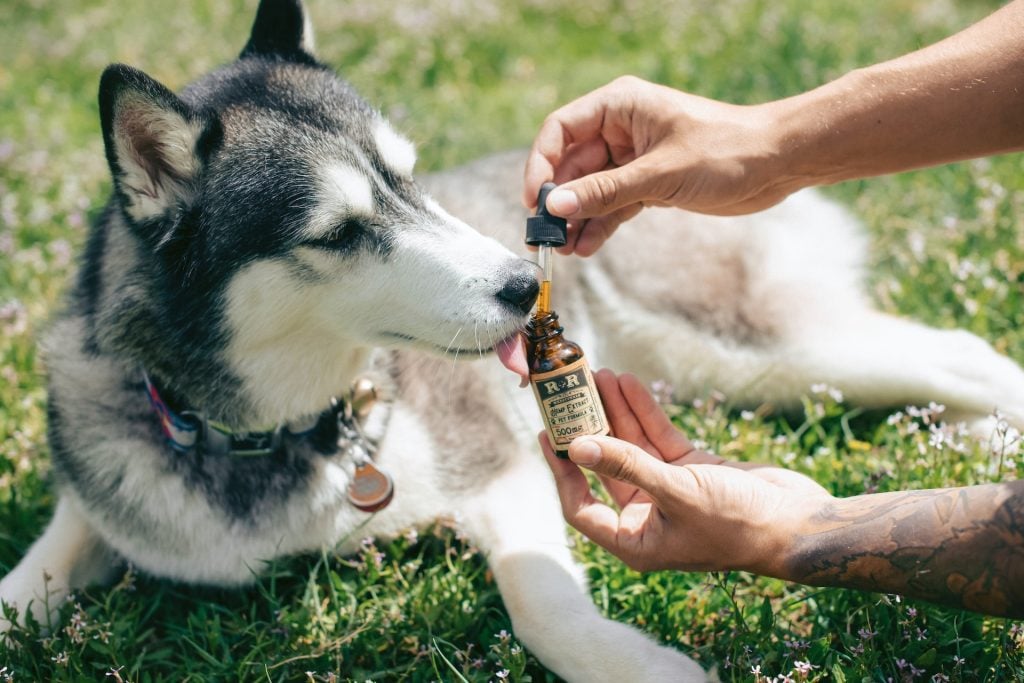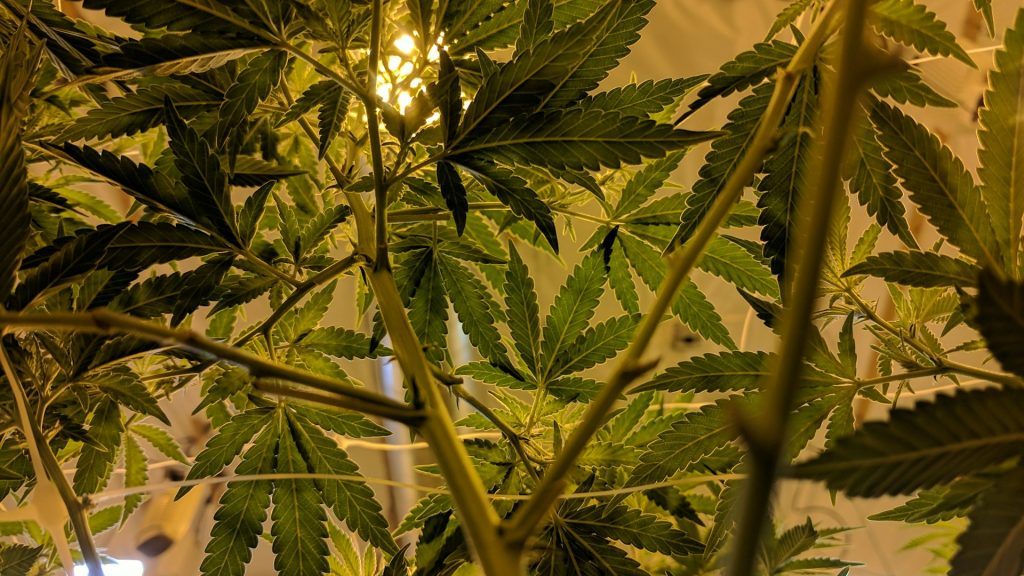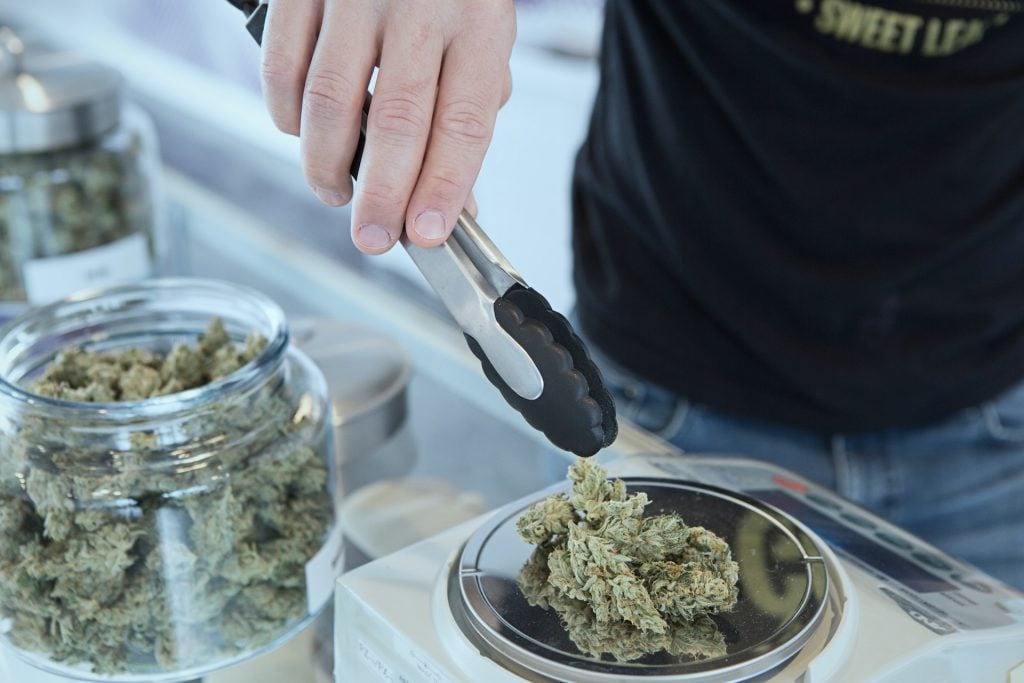In recent years, a notable surge in the use of CBD and THC for pet wellness has captivated the attention of pet owners worldwide. This growing interest stems from a collective desire to explore natural alternatives for supporting our furry companions' health. Pet owners are increasingly drawn to the potential benefits these cannabinoids offer, including relief from anxiety, pain management, and aiding various health conditions in pets.
As the quest for holistic and natural remedies gains momentum, the spotlight shines brightly on CBD and THC, igniting a fervent curiosity among pet owners seeking gentler, plant-based solutions for their beloved animal companions.
Note – While CBD and THC products have shown potential benefits for pets, it's crucial to prioritize your pet's well-being. Before introducing any new supplements or treatments, including CBD or THC products, into your pet's routine, we strongly recommend consulting with a qualified veterinarian or animal health professional.
Understanding CBD and THC

Understanding the fundamental differences between CBD (cannabidiol) and THC (tetrahydrocannabinol) is crucial for pet owners exploring these compounds' potential benefits for their furry companions. Both cannabinoids originate from the cannabis plant but exhibit distinct characteristics and effects.
CBD is predominantly sourced from hemp plants, which contain minimal THC levels (less than 0.3%). Conversely, THC is primarily derived from marijuana and is known for its psychoactive properties, causing the “high” commonly associated with cannabis use. Pet-specific CBD products are formulated to contain minimal to no THC, ensuring they offer therapeutic benefits without inducing intoxication in animals.
Cannabinoids interact with the endocannabinoid system (ECS) present in all mammals, including pets, regulating various physiological functions like mood, pain sensation, appetite, and immune response. CBD and THC influence the ECS differently. CBD interacts indirectly with ECS receptors, stimulating the system to maintain balance without binding directly to the receptors. In contrast, THC binds directly to cannabinoid receptors, particularly the CB1 receptors, leading to psychoactive effects in pets if consumed in high concentrations.
When considering legalities and safety aspects, it's vital for pet owners to prioritize responsible usage. CBD derived from hemp is legal in many regions, but laws regarding THC use in pet products vary widely. Pet owners should verify the legality of CBD and THC products in their area and opt for reputable brands that provide lab-tested, high-quality products free from harmful contaminants. Moreover, consulting with a qualified veterinarian is essential before introducing CBD or THC to a pet's regimen. Vets can offer tailored advice on dosage, potential interactions with existing medications, and monitor any adverse effects.
In summary, CBD and THC differ significantly in their sources, effects, and legal considerations. CBD, primarily sourced from hemp and non-intoxicating, interacts indirectly with the ECS to promote balance in pets. On the other hand, THC, originating from marijuana, is psychoactive and requires careful consideration due to legal restrictions and potential intoxicating effects. Understanding these nuances empowers pet owners to make informed decisions for their pet's health and well-being while ensuring compliance with legal and safety standards.
Benefits of CBD for Pets

CBD has garnered attention among pet owners due to its potential therapeutic benefits, offering a natural and gentle approach to improving the well-being of furry companions.
Anxiety and Stress Relief
CBD exhibits promise in alleviating anxiety and stress in pets. It interacts with the ECS, promoting a calming effect without causing sedation. Many pet owners have reported positive outcomes, noting reduced anxiety-related behaviors in their pets, such as excessive barking, trembling, or hiding during thunderstorms or fireworks.
Pain Management and Inflammation
One of the most recognized benefits of CBD for pets is its ability to manage pain and inflammation. Whether it's due to age-related conditions, injuries, or chronic ailments, CBD's anti-inflammatory properties may help alleviate discomfort. Pets experiencing joint pain, mobility issues, or recovering from surgeries might benefit from CBD's analgesic effects.
Appetite Stimulation and Digestive Support
CBD can also aid in supporting a healthy appetite and digestion in pets. For pets experiencing nausea, digestive issues, or appetite loss due to various underlying factors, CBD may promote a healthier eating routine and better digestive function, thus enhancing overall wellness.
Specific Health Conditions
Studies suggest CBD's potential in managing specific pet health conditions. For instance, in epileptic pets, CBD has shown promise in reducing the frequency and severity of seizures. Additionally, for pets dealing with arthritis or inflammatory conditions, CBD's anti-inflammatory properties may offer relief by mitigating discomfort and improving mobility.
While these potential benefits showcase the promise of CBD for pets' well-being, it's essential to approach its use cautiously. Consulting a veterinarian is crucial to determine the appropriate dosage and assess any potential interactions with existing medications. Every pet's response to CBD may vary, and professional guidance ensures a tailored and safe approach to incorporating CBD into their health regimen.
Pet owners considering CBD for their pets should opt for high-quality products specifically formulated for animals, ensuring they contain appropriate concentrations and are free from harmful additives. Observing any changes in behavior, symptoms, or reactions after introducing CBD to a pet's routine is essential, allowing for adjustments under veterinary guidance if necessary.
In summary, CBD holds potential in alleviating anxiety, managing pain, supporting digestion, and aiding specific health conditions in pets. However, responsible usage, veterinary consultation, and careful observation are crucial to maximizing the benefits while prioritizing the safety and well-being of beloved furry companions.
Exploring THC for Pets

Exploring THC (tetrahydrocannabinol) in the context of pet wellness requires careful consideration due to its psychoactive properties and legal limitations.
Role of THC in Pet Wellness
THC interacts with a pet's endocannabinoid system, primarily binding to CB1 receptors, leading to psychoactive effects. Unlike CBD, THC induces a “high” in pets if consumed in significant amounts. This psychoactive nature of THC limits its direct application in pet wellness compared to CBD.
Legal Limitations and Considerations
THC's psychoactive effects raise significant legal considerations and limitations in many regions. Laws regarding THC use in pet products are stringent due to its intoxicating properties. As a result, the availability and legality of THC-containing products for pets vary widely. Pet owners must adhere to local regulations and ensure compliance when considering any THC-based products for their pets.
Potential Benefits and Concerns
While THC may offer potential therapeutic effects, its psychoactive nature presents significant concerns for pets. In some cases, small amounts of THC combined with CBD may amplify the latter's therapeutic effects, a phenomenon known as the “entourage effect.” However, determining safe THC doses for pets without causing adverse effects remains challenging.
The primary concern with THC revolves around its psychoactive properties, potentially causing disorientation, lethargy, increased anxiety, or even toxicity if ingested in large quantities. Moreover, pets are more sensitive to THC than humans, making accidental ingestion of marijuana-containing products extremely risky and requiring immediate veterinary attention.
Given the legal restrictions, psychoactive effects, and potential risks associated with THC for pets, many veterinarians advise against its use. Instead, pet owners seeking cannabinoid-based remedies are encouraged to focus on CBD products with minimal to no THC content, ensuring safer and non-intoxicating alternatives for their pets' wellness needs.
In conclusion, while THC may offer potential therapeutic effects, its psychoactive nature, legal limitations, and associated risks pose significant challenges for pet wellness. Due to these concerns, many pet experts recommend prioritizing CBD-based products over THC for safer and more suitable alternatives in enhancing pets' health and well-being.
Choosing the Right CBD/THC Products for Pets

Choosing the most suitable CBD or THC products for pets involves careful consideration of several crucial factors to ensure their safety and effectiveness in promoting pet wellness.
Factors to Consider
When selecting CBD or THC products for pets, pet owners should prioritize reputable brands that provide detailed information about product composition, sourcing, and manufacturing processes. Consider factors such as product potency, formulation (e.g., oils, treats, or topicals), and the absence of harmful additives or contaminants.
Dosage Guidelines and Administration
Determining the appropriate dosage for pets requires consideration of factors such as the pet's size, weight, and specific health condition. Starting with a low dosage and gradually increasing it while observing the pet's response is advisable. CBD and THC products come in various forms, including oils, capsules, treats, or topicals, each with different absorption rates and effects. Understanding the administration method that suits your pet's preferences and needs is crucial for optimal results.
Importance of Quality and Sourcing
Quality and sourcing play pivotal roles in the efficacy and safety of CBD or THC products for pets. Opt for products made from organically grown hemp or marijuana (for THC products) to minimize exposure to pesticides, heavy metals, or other harmful substances. Look for products that undergo third-party testing, ensuring potency, purity, and compliance with safety standards.
Pet owners should prioritize products specifically formulated for pets, as human-grade products may contain ingredients unsuitable for animals. Moreover, consulting with a veterinarian before initiating any CBD or THC regimen for pets is crucial. Veterinarians can provide tailored advice regarding product selection, dosage, and potential interactions with existing medications, ensuring a safe and beneficial experience for pets.
Ultimately, investing time in researching and selecting high-quality CBD or THC products tailored for pets, coupled with professional guidance, maximizes the potential benefits while safeguarding the well-being of beloved animal companions.




